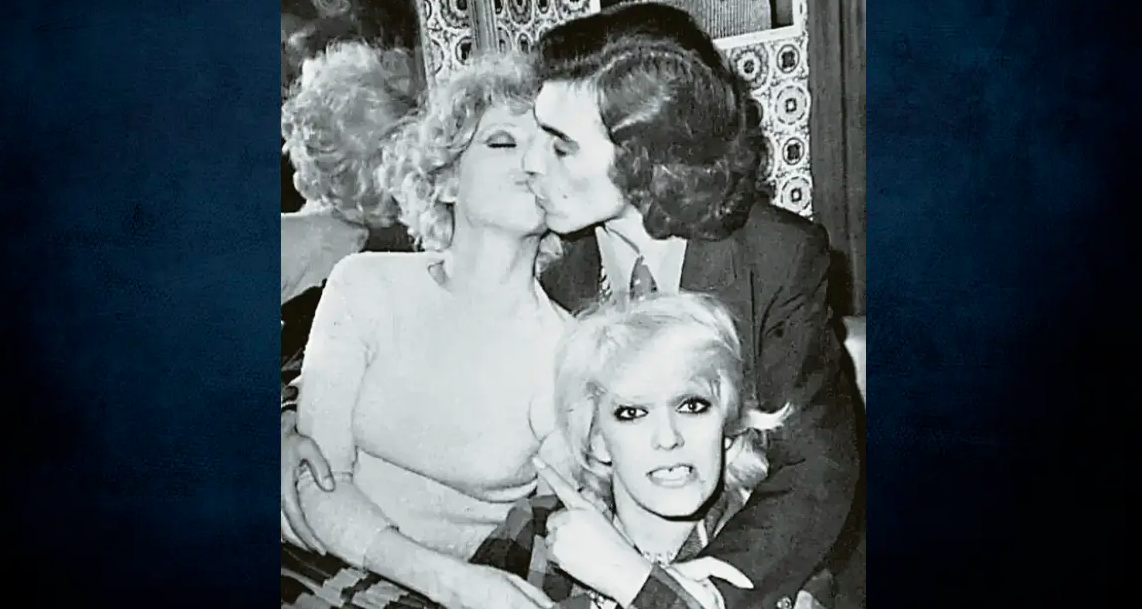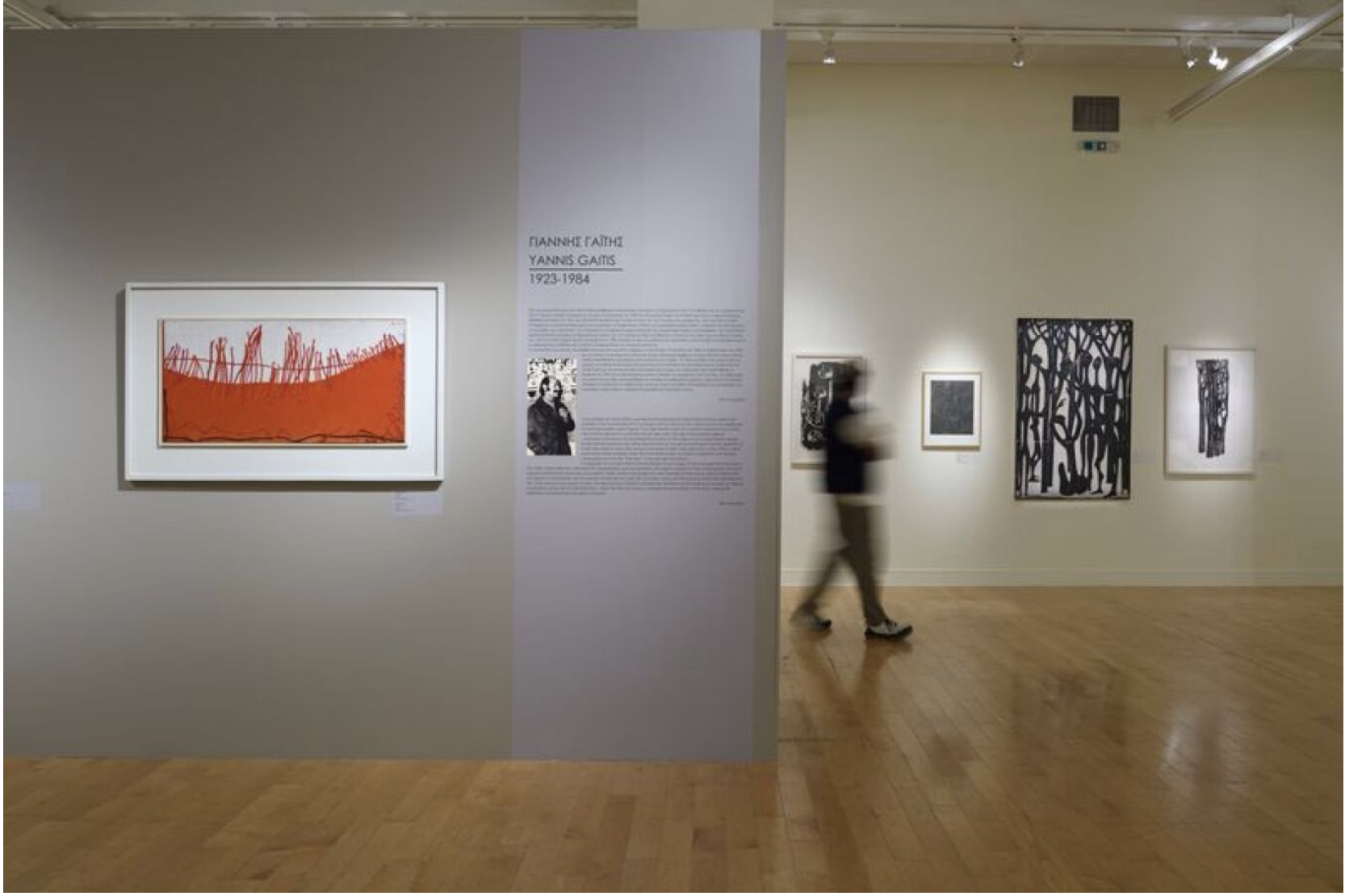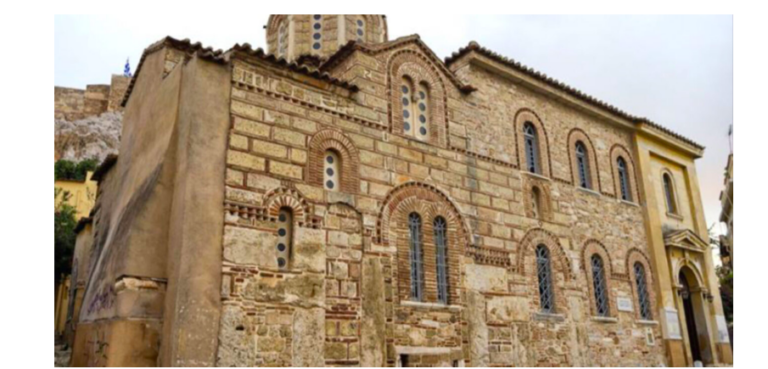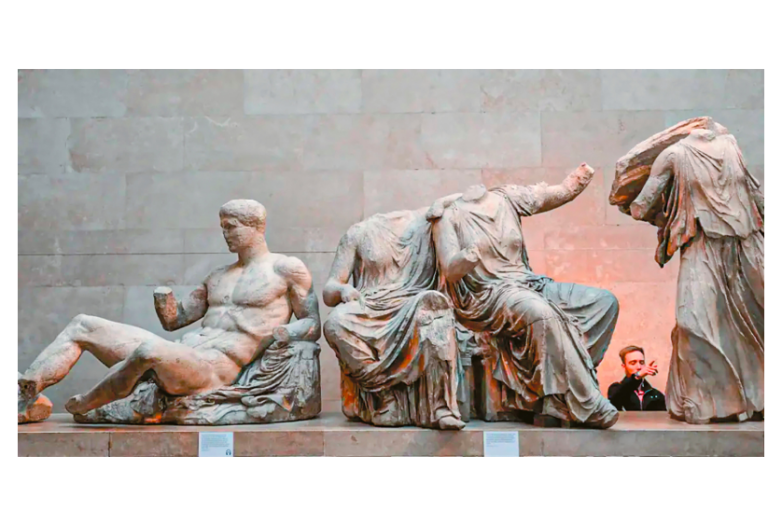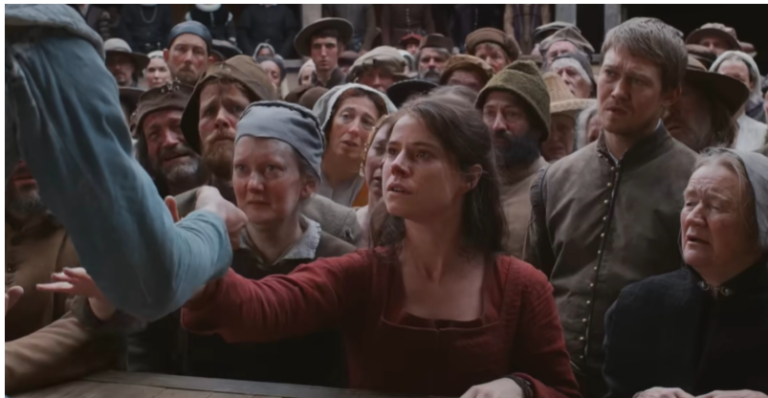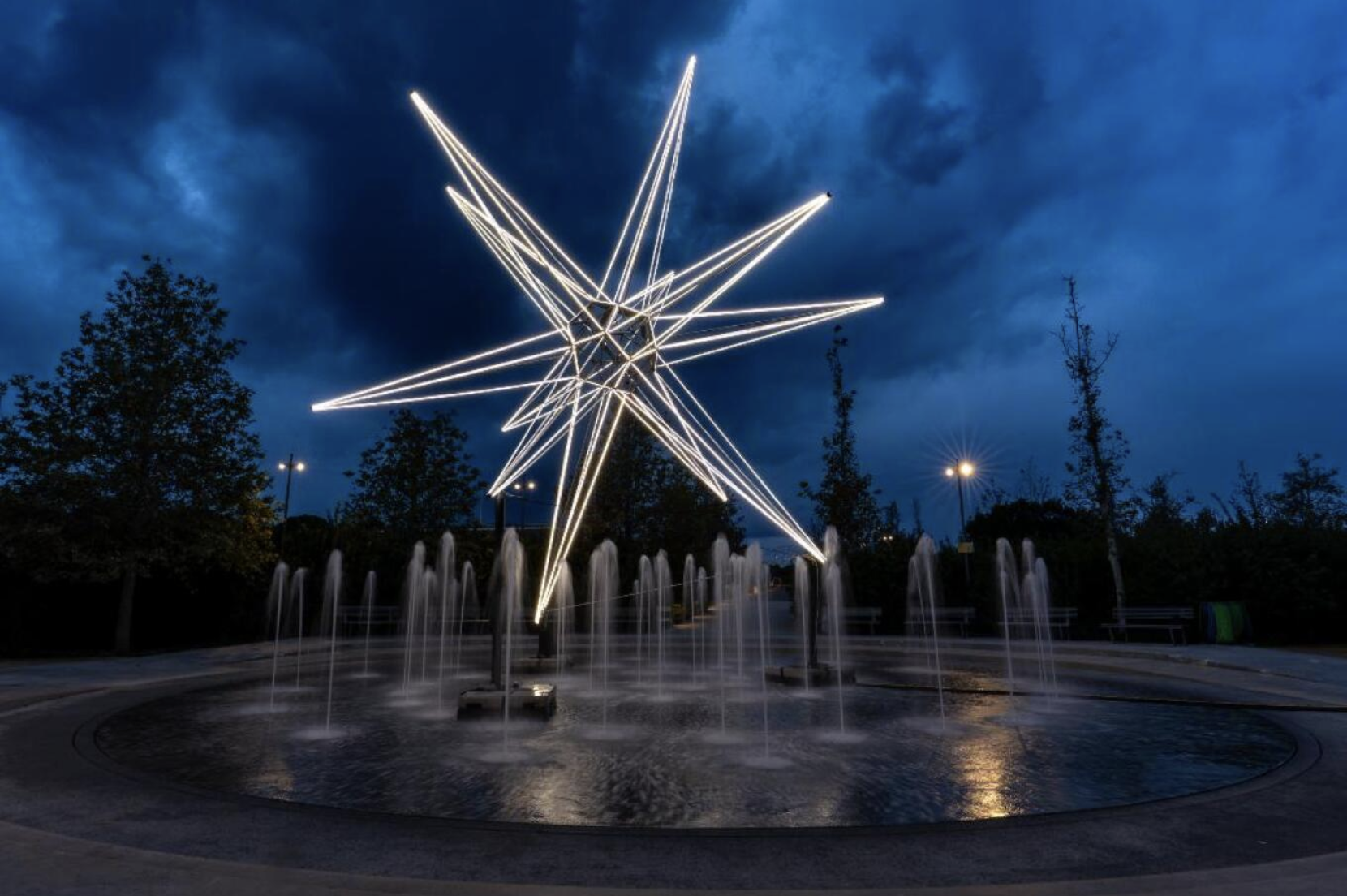“When I was little, I used to get beaten a lot because I was a lively child, always up to mischief. I drove my mother crazy and not just her. She would beat me in hopes that I would behave but to no avail. If I was going to do something, I did it without a second thought.”
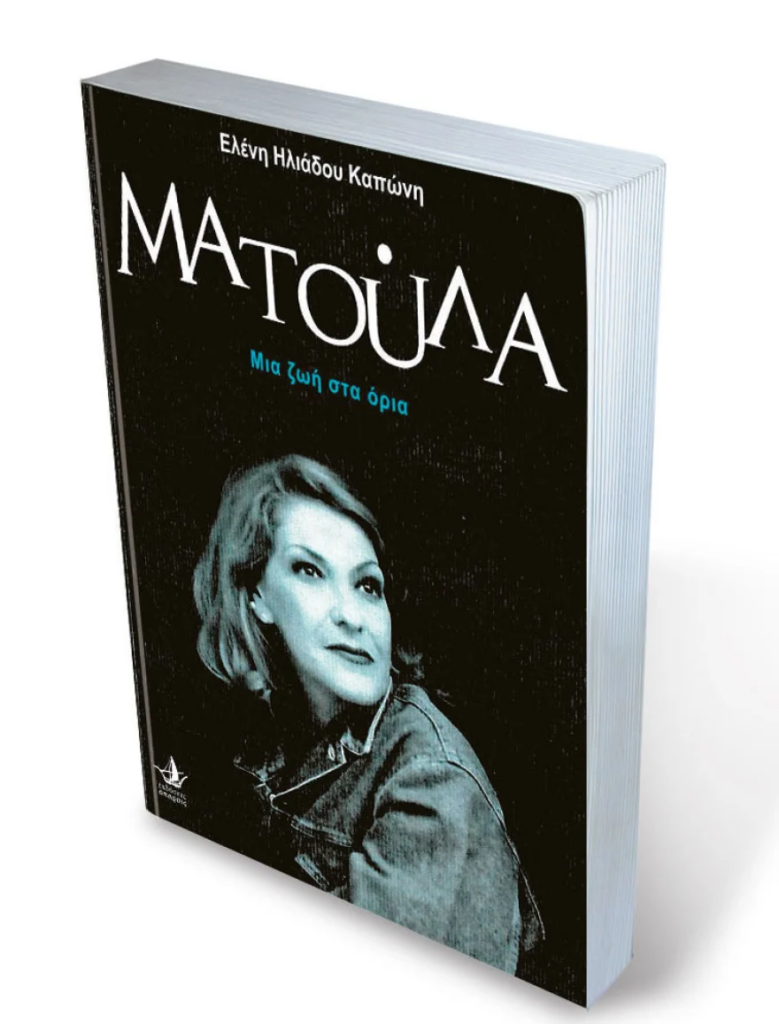
These words from Matoula on the first pages of her book “Matoula – A Life on the Edge” vividly sketch the philosophy of life that this fascinating persona had since childhood. A woman who lived life to the fullest loved passionately, was adored by powerful men, and was loved by princes and movie stars, plunging into a world of pleasure, travel, and endless nights out.
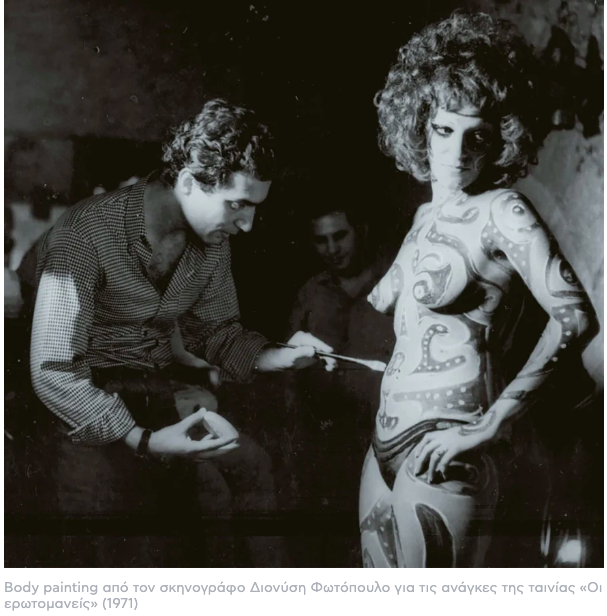
In the literary work of Eleni Iliadou-Kaponis, published by Apopsis Editions, Matoula’s dramatic life unfolds without any anesthesia. She speaks about everyone and everything: her oppressive father, her love for Andreas Barkoulis when she was 15, her famous friends, the endless nights out in bars and nightclubs, and how she became immersed in the world of heroin. This led her ultimately to prison, where she lived the darkest chapter of her life, away from her child and the Kolonaki square that had been her haunt for years.
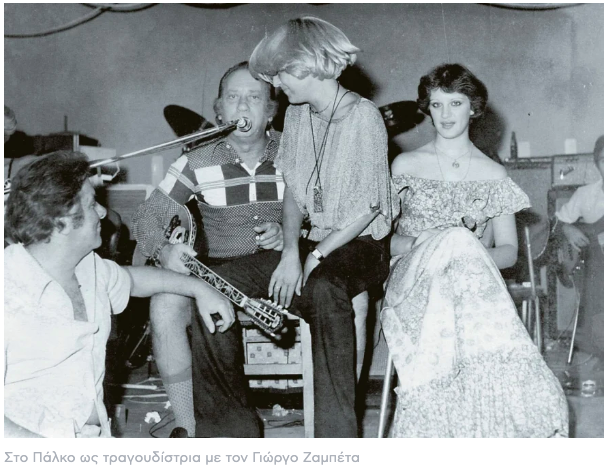
Wild Youngster
From a young age, she was clear about her school life. “School did not interest me at all. In elementary school, I barely passed my classes. I had no mind for academics; it was all about play.”
Her father, Nikos Koutroupoulos, a senior officer of the Gendarmerie, was part of the personal guard of Konstantinos Karamanlis and clearly had dreams for his daughter, which she soon turned into nightmares.
Growing up in Kypseli, the most chic area of Athens at the time, the young girl had neighbors who were stars, such as Kostas Voutsas, Jenny Karezi, and Speranza Vrana. “Kypseli was the place of attraction for all. There was no Kolonaki back then,” Matoula says, who, as she grew up, transformed into a tall teenage beauty with long legs.
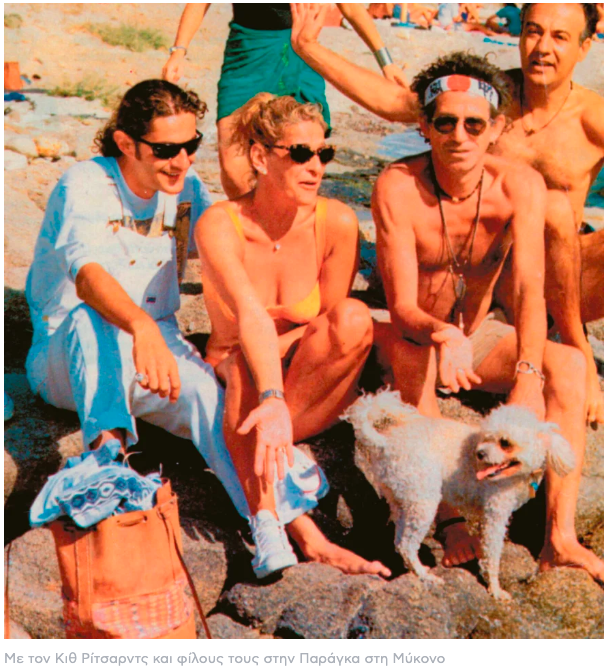
She was a junior high school student and still a minor when she met the charming leading man Andreas Barkoulis at 14, with whom she had a tumultuous relationship and met secretly over the next two years. “And fate had it that one day I met Barkoulis. There was filming at the corner of Kefallinias and Eptanissou. I found out and went. He noticed me the first time he saw me.”
Barkoulis was captivated by the young girl, but as Matoula writes: “Our love was platonic for a long time. I was a virgin. Andreas knew this and never did anything inappropriate. He saw me as a little, happy girl who wanted to learn everything, full of mischief and life. A true gentleman.”
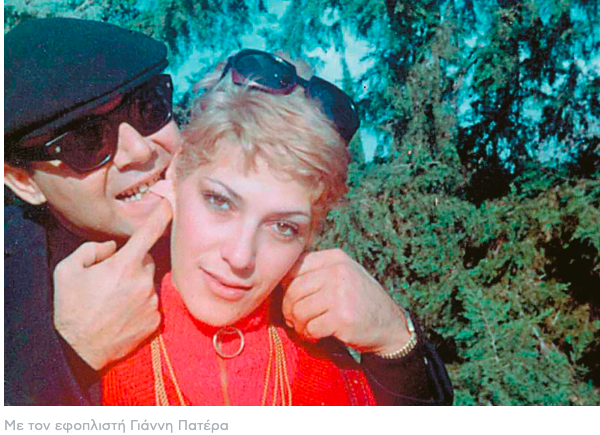
It was during this period that the young student began sneaking out at night to go to clubs, and at school, one suspension followed another as her love for the actor blossomed. “Andreas and I continued to see each other for about a year and a half. I was already fifteen and a half. That’s when I first made love with him.”
Her gendarmerie father constantly quarreled with his rebellious daughter, forbidding her to go out, but she lived for the nights when she would leave while everyone was sleeping and head to Babas Moutsatsos’s “Quinta.”
The sorrow that no one came to pick her up from school gave birth to the now-legendary phrase, as when she told him, he decided to surprise her. “One day he came to pick me up from school without telling me anything! Can you imagine what happened when the girls saw him? Chaos! They screamed: ‘Girls, it’s Barkoulis!’ From that moment on, this phrase became a slogan.”
The Reformatory
The gendarmerie father learns of his daughter’s absences from school, catches her wearing a mini skirt, and responds with violence. When he finds out about her nights out at “Quinta,” he sends patrols to pick her up.
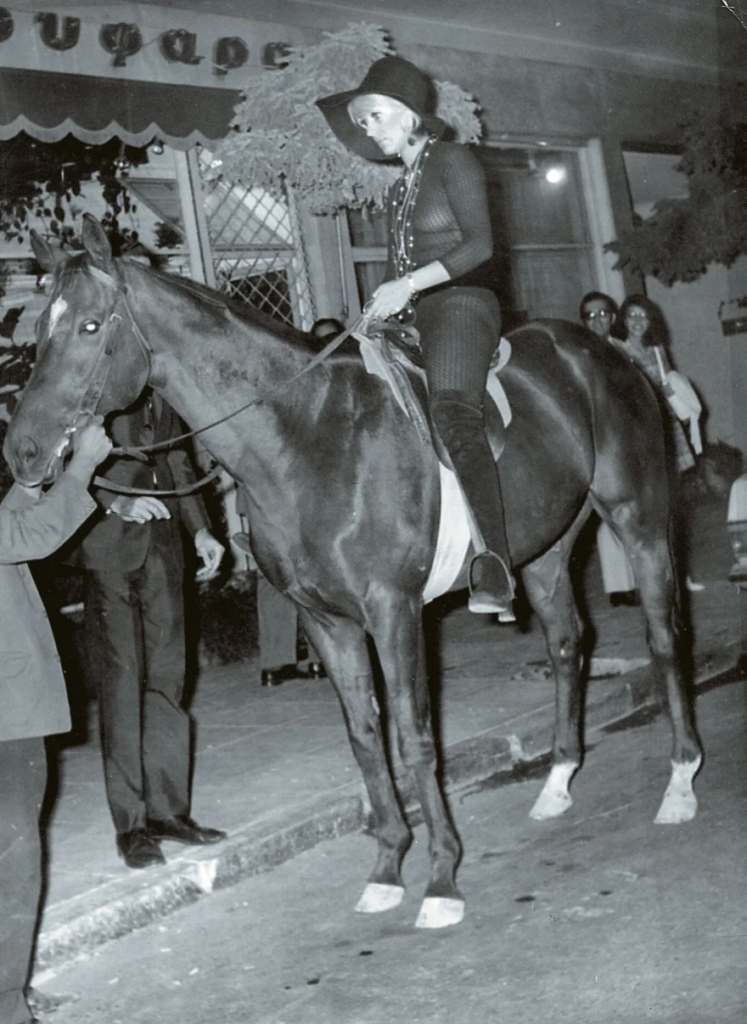
In the mid-1960s, Matoula continued her reckless lifestyle despite the beatings, occasionally avoiding arrest because “Moutsatsos hid me in some boats. One day, he put me inside a refrigerator; they forgot me, and I almost became frozen!”
The tension with her father was such that when they caught her again, he told the police to take her to General Security. There, she was received by the director of Morality & Clubs, Tsougranis, who interrogated her persistently to reveal Barkoulis’s whereabouts, but she said nothing.
Regarding her virginity, “I told him that I did it by myself,” and Tsougranis informs her father, who arrives at General Security and lets his colleague tell his daughter that the next time she leaves, he will send her to a reformatory. Matoula asks what that is, and when they explain, she responds, “Great! Take me there,” leaving them stunned.
Her father himself takes her there, where Matoula will spend a month with other girls and experience a new reality: “I saw girls commit suicide, cut their arms, do things to themselves that I couldn’t have imagined until then. I was horrified.”
Prince Saud!
When she leaves the reformatory, nothing changes for the enchanting girl who lives in the moment: “We would sweep through all the venues every night: ‘Mostrou’, ‘Vrachos’, ‘Plakiotiko Saloni’, ‘Tavanian’, ‘Katakombi.'”
She meets Giorgos Marino, Giannis Paros, Giannis Poulopoulos, Giorgos Zampetas, Kitsos Tegopoulos, and Theodoros Vardinogiannis, and is literally everywhere “wherever your imagination can go! In salons and brothels, in basements and clubs—I had started playing barbuti and rolling dice—and, of course, at bouzoukia!”
She models successfully, and at some point, meets a charming man from the Middle East: “Around the same time, I also met Ernesto. Ernesto was the son of Ibn Saud, the king of Saudi Arabia. Saud had been overthrown by his brother. He took the power and exiled him to Greece. The story with Ernesto didn’t last long. Once our craziness wore off and our differences came to light, we couldn’t be together anymore.”
The Tycoon and the Shipowner
After her breakup with the Saudi prince, Matoula returns to her usual routine, working as a model to make ends meet and sleeping at friends’ houses, refusing to return to her parents’ home.
“That was when I met Mr. Takis Iliadis, a very rich, well-known, and highly regarded man whom I hadn’t had the chance to meet before. I don’t remember how, but at some point, I found myself sitting next to him, chatting.”
They talked for hours, and Iliadis expressed a purely paternal interest in the young woman, after everything she told him, and “that man became my father. He offered me everything I needed to live as I dreamed. With him, I got to know palaces and brothels in a way I hadn’t known until then.”
Matoula would meet her great love one night at “Quinta.” “Giannis Patras was my great love, the well-known shipowner. When I met him, I didn’t even know what he did or who he was. He had just divorced his wife and was alone. We hit it off immediately as soon as we met, and we started going out together.”
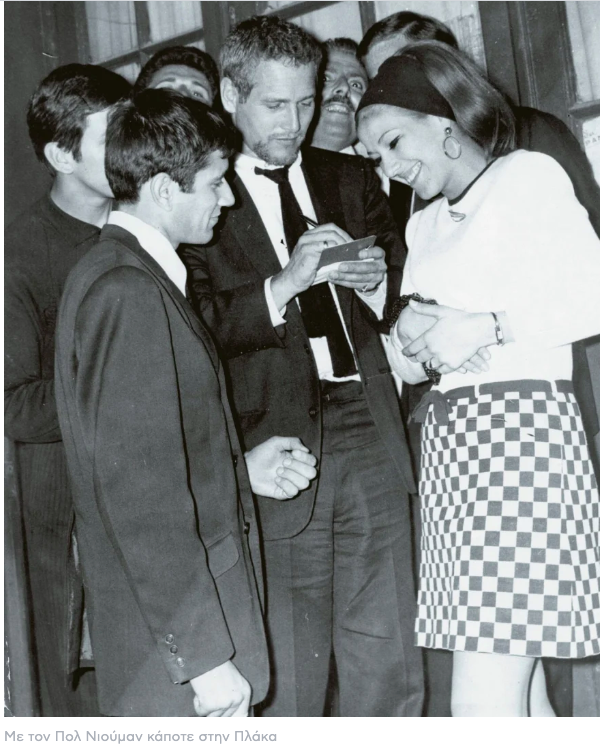
The romance quickly became known in cosmopolitan Athens, and the life of the 18-year-old changed completely as she entered other circles, traveling, enjoying dreamy vacations, while the shipowner showered her with gifts. They lived together for four years and were ready to marry, “but unfortunately, all good things come to an end one day. That’s what happened with this relationship. We broke up because I saw him with another girl and I lost it.”
The same day she saw the shipowner, she met two friends in Kolonaki who told her they were ready to leave for London by car. Matoula followed them without saying anything to him, just going to the house where they lived, taking only her passport, and closing the chapter on “Giannis Patras.” Unfortunately, she opened another one that would lead her to prison years later.
Coke and the Horse!
“In London, unfortunately, I had my first encounter with coke. An encounter that later turned into destruction. One night in a group, someone gave me some, and I tried it. Unfortunately, anything with a dose of sin had always fascinated me since I was young. Of course, I didn’t get hooked immediately; that happened later, without me really realizing it. By the time I understood that I was sick, it was already too late.”
After two months in London and a trip to America, she returned to Greece, and Iliadis helped her again after her breakup with Patras. When “Stage Coach,” a venue that is a faithful replica of an American saloon, opened in Kolonaki, “I thought it would be fun to go to the opening riding a horse.”
For the occasion, Matoula wore black lace leggings, but when she saw the horse, “I was afraid to get on; it seemed huge. We gave it sugar to calm it down, so it would accept me and wouldn’t start kicking. It accepted me on its back without a problem.”
From Karneadou, the horse-riding beauty emerged on the lower side of the square, and people were shocked to see the girl and the horse climbing Patriarchou Ioakeim. When she arrived at
Ask me anything
Explore related questions
